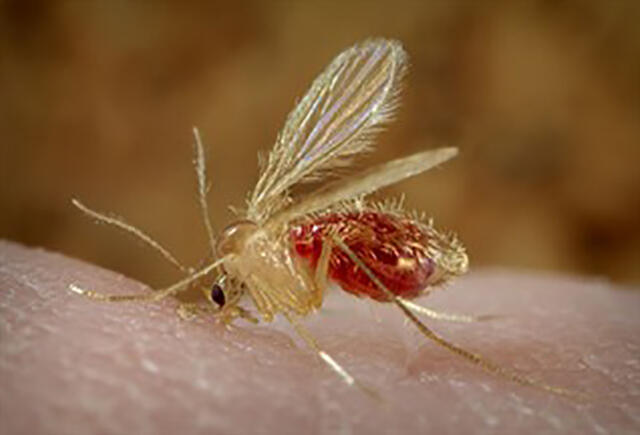
Researchers at LSTM have found that those people who have been exposed to the bite of the sandfly on numerous occasions are more likely to have a milder form of cutaneous leishmaniasis if they develop the disease.
Leishmania is transmitted by the bite of infected female sandflies. When a sandfly bites a vertebrate host, it injects a cocktail of salivary proteins meant to facilitate blood feeding. The constant exposure to sandfly bites triggers a humoral immune response against the major antigenic components in the saliva. These antibodies can be then exploited to measure exposure to sandflies, which is useful for surveillance in leishmaniasis control programmes.
The sandfly Phlebotomus papatasi is the vector of Leishmania major, the main causative agent of Old World cutaneous leishmaniasis (CL) in Saudi Arabia. During this observational study, the results of which are published in PLOS NTD this week, the team at LSTM worked with colleagues at National Institutes of Health in the USA and the Saudi Ministry of Health to use recombinant PpSP32 (a salivary protein) to evaluate human exposure to Ph. papatasi bites, and study the association between antibody response to saliva and CL in endemic areas in Saudi Arabia.
The anti-PpSP32 antibodies, as indicators of exposure to sandfly bites, were measured in blood from healthy individuals and patients from endemic regions with active and cured CL, where Ph. papatasi was identified as the primary vector. Anti-PpSP32 antibody levels were significantly higher in CL patients presenting active infections from all geographical regions compared to CL cured and healthy individuals. Furthermore, higher anti-PpSP32 antibody levels correlated with the prevalence and type of CL lesions observed in patients, especially non-local construction workers, indicating these are at higher risk of developing severe lesions.
LSTM’s Dr Alvaro Acosta-Serrano, supervising author on the study, said: “Our results suggest that previous long-term exposure to sandfly saliva can have a role in modulating the severity of leishmaniasis infection, resulting in a milder form of the disease. This finding has implications for CL control not only in Saudi Arabia, but in all countries currently affected by this debilitating disease”.